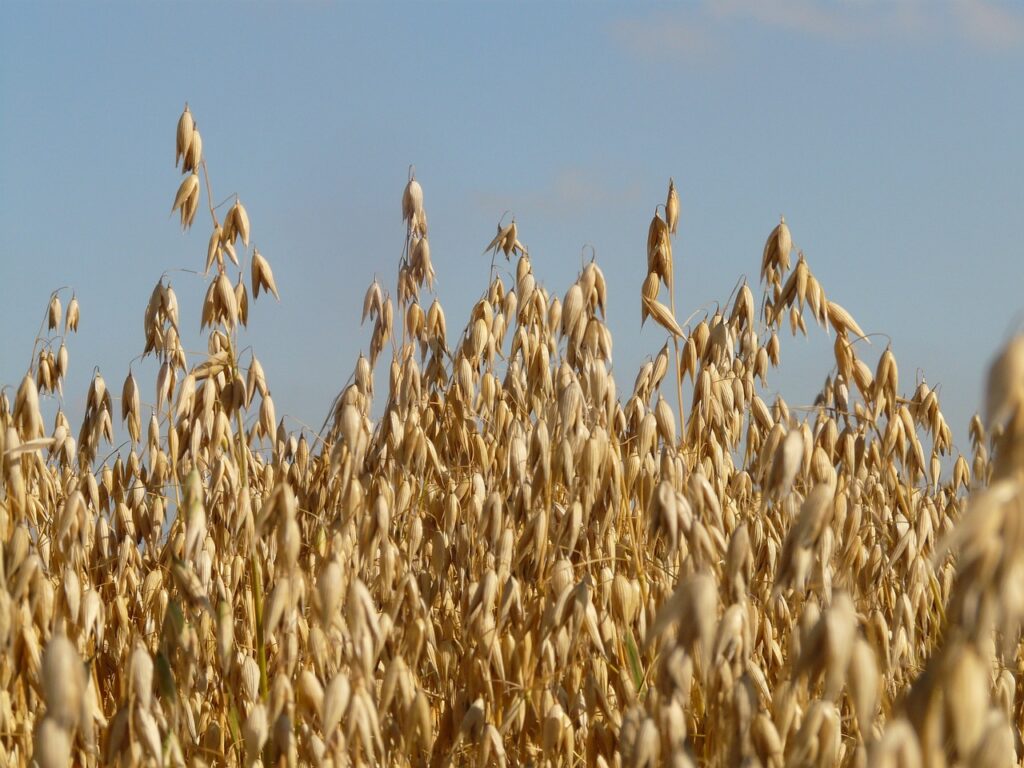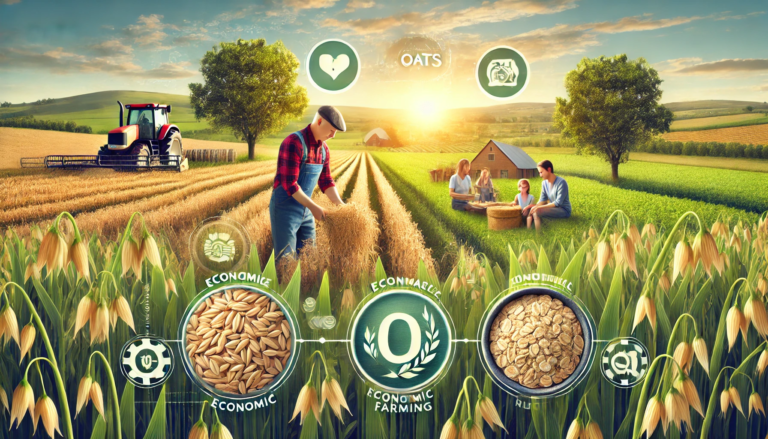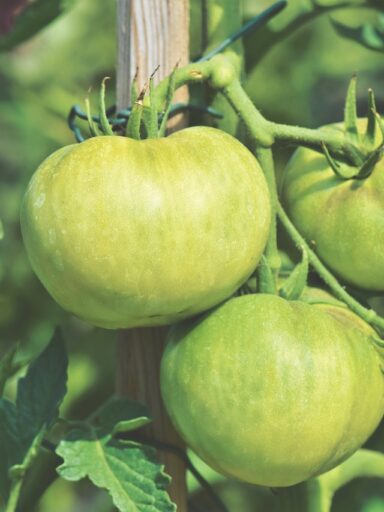
The global demand for oats has been steadily increasing and has been driven by the growing popularity of oat-based products like oatmeal, granola bars, and oat milk. This rising demand presents farmers with a profitable market for their oat crops. Growing oats offer farmers various economic advantages. Oats are known to be resilient and adapt well to diverse climates, making them a feasible option for farmers in different regions. This versatility provides small-scale farmers with opportunities to cultivate oats and broaden their streams of income.
Sustainable Agriculture and Environmental Impact:
Oats are well-regarded for their sustainable agricultural practices. As a low-input crop, oats typically require less synthetic fertilizers and pesticides compared to other grains. Oat cultivation can require up to 30% less fertilizer and 90% less pesticide use compared to wheat or corn crops [fact-check and hyperlink source]. This reduces the potential for chemical runoff and pollution, promoting healthier ecosystems and protecting water sources. The cultivation of oats also supports crop rotation practices, improving soil fertility and reducing soil erosion.
By including oats in their rotation, farmers can benefit from reduced input costs, improved soil health, and enhanced pest management while contributing to the preservation of natural resources.
On the Consumer Side:
Oats offer more than just their nutritional benefits to consumers; they play an important role in supporting producers and local economies, providing economic opportunities for farmers to promote sustainable agriculture and ethical sourcing practices while offering consumers a variety of nutritional benefits.





